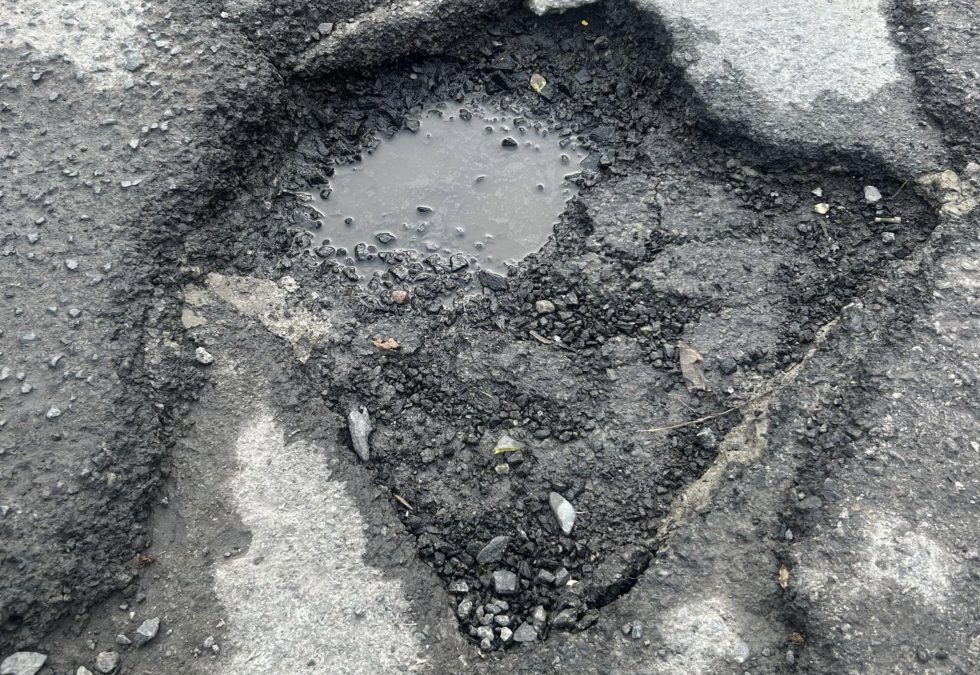In the week all the main political parties will launch their manifestoes for next month’s General Election, the RAC is highlighting six key priorities for the incoming government that would improve the lives of the country’s 40m drivers.
The RAC’s calls to action are backed by the company’s extensive and ongoing analysis of data and driver research – including from its own annual Report on Motoring that has provided an unrivalled view of motorists’ concerns and behaviours on the road since 1989.
The RAC’s six priorities for the next government are:
- Better local roads
- Fairer fuel prices
- A road safety reset
- Reduce the motor insurance tax burden
- Support the transition to EVs
- Ensure civil motoring offences are enforced fairly
Better local roads – RAC research shows the state of local roads is drivers’ number-one concern
Support cash-strapped councils by guaranteeing increased funding for road maintenance over a long-term period – at least for the duration of the next Parliament – and commit to ringfencing some general taxation to pay for this
Commit councils to significantly increasing the levels of proactive road maintenance – surface dressing and resurfacing – and move away from the symptomatic approach of merely filling in potholes. RAC analysis of government data found that council road maintenance is at its lowest point in at least the last five years
Work with local authorities to understand the skills problems they’re facing when it comes to looking after the roads they are responsible for, drawing on best practice from the road maintenance industry. The RAC is talking to the Road Surface Treatments Association, Road Emulsion Association and Institute of Asphalt Technology to better understand why so many of the nation’s roads are in such a poor state
Fairer fuel prices – RAC research shows the cost of fuel is drivers’ second biggest concern
Bring an end to the postcode lottery where prices for petrol and diesel can be wildly different from place to place and ensuring retailers pass on savings from significant drops in the wholesale price of fuel by quickly setting up the Pump Watch scheme and price monitoring body as legislated by the previous government. The RAC regularly engages with the Competition and Markets Authority about its emerging regulatory plans, and analyses data collected from retailers on a weekly basis via RAC Fuel Watch
Maintain the current 5p duty cut – due to be reversed next March – until at least Spring 2026 and ideally until such time as the Pump Watch scheme is up and running
Reduce Insurance Premium Tax from its current 12% which is compounding the recent rises in motor insurance, the burden of which is felt far more by younger and more inexperienced drivers who pay the highest premiums. Average insurance premiums are up by 33% over the last 12 months
A road safety reset
Give road safety the attention and resources it deserves by reintroducing formal road casualty reduction targets, which were scrapped in 2010
Convert all-lane running stretches of smart motorway to either controlled motorways, with hard shoulders permanently restored, or to dynamic hard shoulder schemes – where a hard shoulder is in place for much of the day and night. RAC research shows ongoing driver dissatisfaction with all-lane running smart motorways, with most drivers deliberately avoiding driving in the inside lane that used to be the hard shoulder
Launch a consultation on introducing a Graduated Driving Licensing (GDL) scheme to keep new drivers safe. Young drivers, especially young men, are statistically far more likely to be involved in serious or fatal collisions. The RAC has previously supported a Bill by an MP to bring forward a GDL scheme
Follow through with the previous government’s commitment to fund independent research into the problems of headlight glare. The RAC is leading a campaign to address this issue, and secured a commitment from the outgoing government to conduct independent research into it
Work with police forces and road safety organisations to introduce a crackdown on drivers who speed excessively
Reduce the motor insurance tax burden
Reduce Insurance Premium Tax from its current 12% which is compounding the recent rises in motor insurance, the burden of which is felt far more by younger and more inexperienced drivers who pay the highest premiums. Average insurance premiums are up by 33% over the last 12 months
Support the transition to electric vehicles
Reintroduce a plug-in car grant aimed at stimulating the cheaper end of the new car market to make going electric more affordable. SMMT data, as well as RAC research, confirms a slowdown in private registrations of new EVs that needs to be addressed
Reduce VAT on public EV charging from 20% to match the 5% levied on domestic electricity so those who can’t charge at home aren’t disadvantaged
Government and charge point operators to adopt the RAC and FairCharge Charging Charter so that all chargers are accessible and safe for all, charger locations are clearly signposted and kWh prices are displayed prominently for drivers to see. The charter, the first of its kind in the UK, was referenced and recommended to the Government by the House of Lords committee as part of its recent EV inquiry
Ensure civil motoring offences are enforced fairly
Ensure councils use new moving traffic offence powers fairly regarding yellow box junctions – many are too large which means drivers will be fined unnecessarily. A future government should update guidance for councils and ensure they follow it correctly. Analysis conducted for the RAC in Marchfound most yellow boxes already enforced in London and Cardiff are bigger than they need to be to keep traffic moving, risking unnecessary fines
Prioritise publishing the revised Parking Code of Practice to prevent drivers being unfairly fined by private parking operators. Despite the code becoming law in 2019, it has been delayed by legal challenges from private parking operators. Private parking companies continue to issue excessive numbers of fines to drivers, with many simply paying up rather than contesting fines – even if they are in the right
Fairer parking payment – ensure drivers can always pay for parking by at least two different means, including contactless bank cards/via mobile phone. The RAC has previously surveyed drivers on the extent to which councils are removing parking payment machines altogether – forcing drivers to use mobile apps, much to their frustration
Introduce the National Parking Platform so that drivers can pay for parking with one app of their choice instead of having to download and use a myriad of different ones
RAC head of policy Simon Williams: “From potholes to pump prices, and from private parking operators to public EV charging, there was always going to be a lot sitting in the new government’s in-tray come July 4th. If our six key priorities, all of which are supported by data and research with drivers, are implemented over the course of the next parliamentary term they will bring meaningful benefits for road users up and down the country.
“We’ll be using this list to evaluate each of the main party’s election manifestoes as they’re launched this week and hope that ministers-to-be do indeed ‘deliver for drivers’ by taking heed of their most pressing concerns, not least those connected to the high cost of living.”




